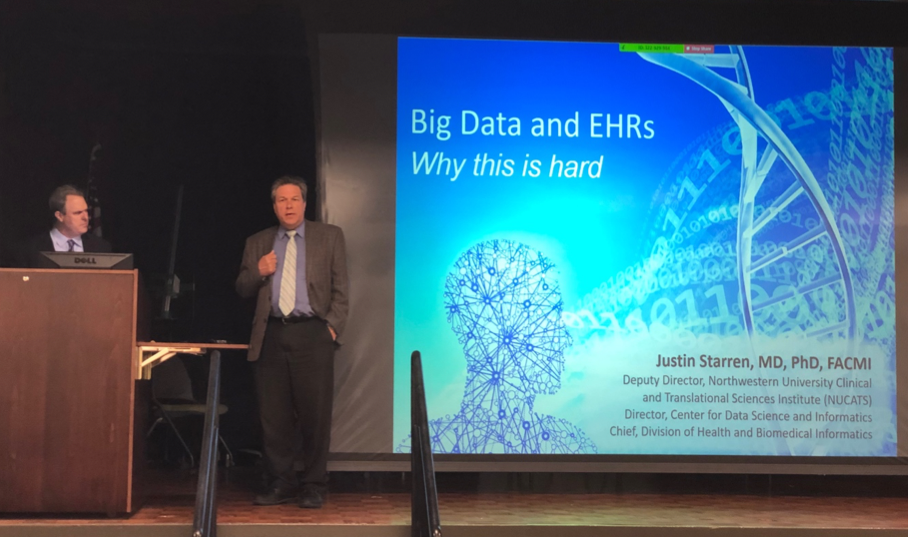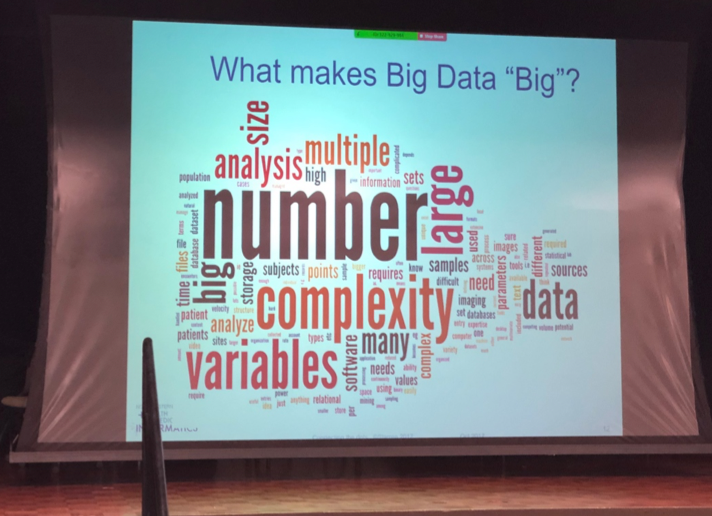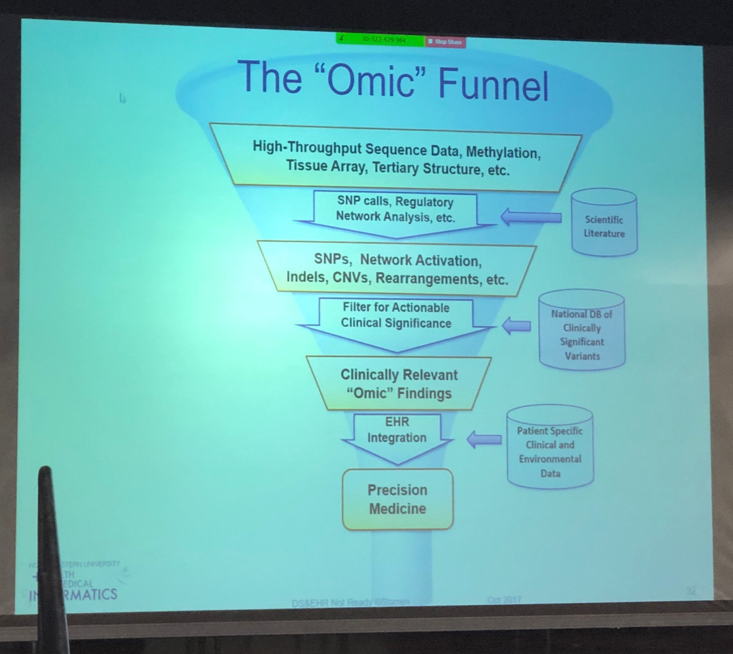
Dr. Justin Starren, Chief of the Division of Health and Biomedical Informatics at Northwestern University’s Feinberg School of Medicine, visited the CCTS Hub recently to discuss how “seismic transformations in healthcare” are stressing current generation electronic health records (EHRs), which are not designed for the big data challenges of precision medicine. The vision for integrating genomic data and EHRs represents a win-win-win for patients, clinicians, and researchers. But what will it take to get there?
The Challenges
Starren outlined several challenges that must be overcome to improve EHR capacity to support patient care and research in the era of precision medicine:
- The variety in biomedical data types, which range in size and complexity from claims data in the kilobyte range per patient to microbiome and proteomic data that can measure in the petabytes.
- Clinician needs for real-time decision support require the integration of knowledge resources that are also big data, such as 2.5 million scientific articles, 2,515 guidelines, 150,000 medications, 68,000 potential diagnoses, and 88,000,000 known genetic differences.
- Genomic data are “weird” as well as big, requiring clinicians to learn about the clinical relevance of terms such as genetic certainty, frequency, penetrance, severity, pathogenicity, and actionability. The integration of these data into EHRs in a way that is useful to clinical decision making remains an enormous challenge.
- Regulatory hurdles and cultural tensions prevent the real-time flow and sharing of data between the research and clinical worlds. Researchers and clinicians navigate different data environments and use data differently, adding to the challenge of creating a centralized solution that meets their disparate needs, for all that they are both pulling toward the same general goal—to improve the health of patients/populations.
Starren discussed several initiatives that aim to help bring EHRs into the precision medicine era, calling for a more robust and clearly defined relationship between the data science and informatics fields. “Both transform data from the world into knowledge,” he said, but they “require different core skills and enter and exit the data processing cycle at different points,” with data science on the “afferent” side and informatics on the “efferent” side.
An “eMERGE-nt” Solution
Among the initiatives Starren described was the Electronic Medical Records and Genomics (eMERGE) Network, a national consortium organized and funded by the National Human Genome Research Institute (NHGRI). Launched in 2007, eMERGE is now in Phase III and includes nine study sites, two central sequencing and genotyping facilities, and a coordinating center. The project’s objectives are ambitious: continue to develop and validate electronic phenotyping algorithms for large-scale, high-throughput genomics research; to discover genetic variants related to complex traits; to disseminate results and lessons learned to the scientific community; and to deliver state-of-the-art genomic knowledge, methods, and approaches to clinical decision support and clinical care.
More specifically, eMERGE Phase III aims to: (1) sequence and assess the phenotypic implication of rare variants in ~100 clinically relevant genes presumed to affect gene function in about 25,000 individuals; (2) assess the phenotypic implications of these variants, (3) integrate genetic variants into EMRs for clinical care; and (4) create community resources. EMERGE is also assessing the health impact, cost effectiveness, and ethical, legal and social implications of reporting genetic variants on a broader population scale for patients, clinicians, and healthcare institutions.
External institutions may apply for affiliate membership in eMERGE.
CCTS thanks Dr. James Cimino, CCTS CoDirector and Director of the UAB Informatics Institute, which hosted this event, for inviting Dr. Starren to the Hub to share his vision for next-generation EHRs. Join us TODAY for another Informatics Institute event featuring National Library of Medicine Director Patricia Brennan, RN, PhD, FAAN, who will present “From Precision Medicine to Precision Health: NLM Partnerships.” 10am-11am, Cudworth Auditorium, UAB.




